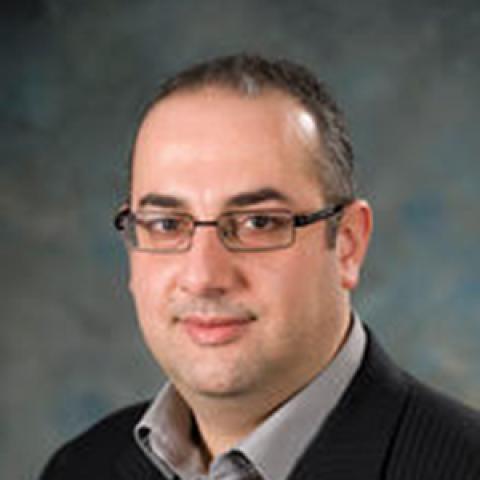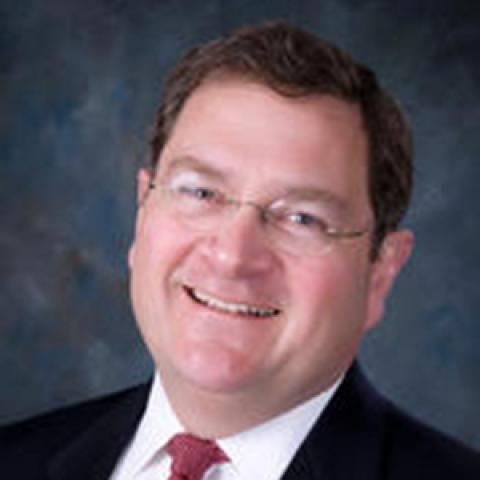Gabriel Schoenfeld on Snowden, the NSA, and intelligence reform:
President Obama gave a major speech on surveillance reform less than two weeks ago, so it is unsurprising that he only devoted a few words to the subject in his State of the Union Address. And it is unsurprising that those few words broke no new ground. Though the president did not mention Edward Snowden's name, the intelligence disaster set in motion by Snowden will not disappear. In responding to it, the president is caught between the pressure from those in his base on the Left, who want to radically curtail surveillance and American intelligence gathering, and those that arise from the basic responsibilities of his job: to protect the United States from terrorist attack and advance the national security interests of the country.
* The president is known to study his daily intelligence brief with care.
Indeed, one of his top staffers once boasted that he is “among the most sophisticated consumers of intelligence on the planet.” That seems somewhat exaggerated for a president who didn't happen to know that his own spy agencies were tapping the phone of German chancellor Angela Merkel. But still, even if Obama is less of an intelligence devotee than his loyalists would have it, he without doubt has a strong sense of the quality of the counter-terrorism intelligence the NSA and other U.S. intelligence agencies are generating and an appreciation of its value for protecting America from harm. It is the tension between those two countervailing pressures that go some distance toward explaining why President Obama has proposed reforms that do little to enhance American security and equally little to appease those of his supporters who aim for unilateral American disarmament in the realm of intelligence gathering.
* The State of the Union Address left all of the key questions surrounding surveillance as unsettled as they were yesterday.
* Unsettled is surely how they will remain for a considerable time to come.
Husain Haqqani on Iraq and Afghanistan:
President Obama’s State of the Union address was heavily focused on domestic issues and his vision for remaking the United States. He did not mention foreign policy until an hour into the speech and said little that suggested a willingness to act as leader of the free world. Obama spoke of US withdrawal from Iraq and Afghanistan as achievements. Although this may appeal to sentiments among a broad segment of the Democratic Party base, it does not enhance America’s ability to bring greater stability to turbulent parts of the world.
Obama made future US presence in Afghanistan, howsoever small, contingent upon conclusion of a Bilateral Security Agreement. Although he spoke of a continued commitment to tracking down and fighting remnants of al-Qaeda, it is clear that the US will now disengage from Afghanistan and Pakistan. While a review of US policy for the region was due, the manner in which Obama has articulated his desire to hurriedly disengage could have an adverse impact on the war against terrorists. This could encourage al-Qaeda and the Taliban to build the narrative that they forced the US from Afghanistan just as they had forced the Soviets out a quarter century ago, which, in turn, could lead to a Jihadi resurgence.
Lee Smith on the ‘Golden Age of American Diplomacy’
The president spent very little time on Middle East policy during his State of the Union speech last night, but to hear him tell it, this past year marked a golden age in American regional diplomacy.
“American diplomacy,” said Obama, “is supporting Israelis and Palestinians as they engage in the difficult but necessary talks to end the conflict there.” Israeli Defense Minister Moshe Yaalon, who has "called":http://www.jpost.com/Diplomacy-and-Politics/Yaalon-criticized-for-repor… John Kerry “obsessive and messianic” for his overbearing efforts to broker what is at present a workable peace process, no doubt disagrees with the president’s assessment.
“American diplomacy,” the president continued, “backed by the threat of force, is why Syria's chemical weapons are being eliminated.” In fact, Syria has "shipped":http://www.reuters.com/article/2014/01/29/us-syria-crisis-chemical-idUS… out only 5 percent of its chemical weapons arsenal to be destroyed. It is because the White House has abandoned its policy of regime change in Syria, as stated by the president in August 2011, that it is focusing on the means Assad has used to slaughter Syrians rather than the tyrant employing them. Instead of working to topple Assad, the White House, thanks to the Russian-sponsored initiative over chemical weapons, has effectively made Assad a partner.
“And it is American diplomacy,” said Obama, “backed by pressure, that has halted the progress of Iran's nuclear program -- and rolled back parts of that program -- for the very first time in a decade. As we gather here tonight, Iran has begun to eliminate its stockpile of higher levels of enriched uranium.”
If it’s been such a terrific year for American diplomacy, it’s curious why the White House will not release the text of the agreement that presumably marks the administration’s crowning achievement in Middle East diplomacy—the interim deal, known as the Joint Plan of Action, implemented last week over Iran’s nuclear weapons program. The Washington Free Beacon's Adam Kredo "reported":http://freebeacon.com/lawmaker-iran-deal-being-kept-in-super-secret-loc… that Rep. Ileana Ros-Lehtinen (R-FL) was baffled by the administration’s handling of the affair. “Why is it that members of Congress have to go to a super-secret location, a cone of silence … to look at the deal?” Ros-Lehtinen asked a panel of nuclear experts on Tuesday.
Maybe the JPA isn’t as solid as the president claimed last night. Contrary to what Obama said, Iranian president Hassan Rouhani "told":http://cnnpressroom.blogs.cnn.com/2014/01/26/iranian-president-rouhani-… CNN’s Fareed Zakaria on Sunday that Tehran will not dismantle any centrifuges, and will continue work on the heavy water plutonium reactor at Arak. It’s hardly surprising then that, as virtually every poll on the issue shows, the American public distrusts the Iranian regime, and TheTower.org, an English-language news site published by The Israel Project, "explained":http://www.thetower.org/mellman-poll/ yesterday that voters “want their lawmakers to craft policies that reflect their misgivings over Iranian intentions.”
Indeed, a new poll "released":http://www.thedailybeast.com/articles/2014/01/28/poll-americans-don-t-t… by the Israel Project, shows that, according to Josh Rogin at the Daily Beast, “a majority of Americans disapprove of President Obama’s handling of the Iran issue and want Congress to have a say in any final agreement with Tehran over its nuclear program.”
The American electorate is also in favor of the new sanctions legislation, which Obama promised last night to veto should it cross his desk. That will put him at odds with the American public, which according the TIP poll, conducted by democratic pollster Mark Mellman, "supports":http://www.scribd.com/doc/202851458/Tip-Mellman-Iran-Survey-Jan-24-2014 the new sanctions legislation by a margin of 63 percent to 28 percent. Even a majority of Democrats, at 55 percent, support the new sanctions legislation.
American diplomacy is supposed to maintain and advance U.S. interests. What the TIP poll shows is that the public broadly disagrees with Obama’s claims made last night. They believe that, at least regarding the super-secret JPA, it wasn’t a great year for American diplomacy. They don’t trust the regime in Tehran and they don’t like the way the White House is handling an adversary of thirty-five years.
Samuel Tadros on Egypt, Syria and Afghanistan:
President Obama in his State of the Union address yesterday devoted one fifth of his speech to taking a tour of world affairs. With Al Qaeda and Iran at the center of those remarks, most world regions and foreign policy problems received a one line mention indicating the administration’s lack of interest in those questions, and hence the absence of any coherent policy. The ongoing Syrian civil war is but the most glaring example in that regard. Three years after the beginning of the Syrian crisis, President Obama still has no policy towards Syria. Egypt was completely absent from the speech and likely from the president’s mind, as the U.S. continues to send mixed signals as to what its actual policy towards the country is.
The president touted the end of the American troop presence in Afghanistan and declared that the mission will be completed by the end of the year. It remains, however, unclear what mission the president believes the U.S. has been undertaking there. Has it been the defeat of Al Qaeda? Securing Afghanistan? Certainly neither of these tasks is likely to be completed by the end of the year.
Chris Sands on Trade:
The president asked Congress in the State of the Union address to grant him Trade Promotion Authority (formerly known as fast-track negotiating authority) for the Trans Pacific Partnership and Transatlantic Trade and Investment Partnership talks, which are already underway. This was essential: a bill to grant this authority—crafted by Senators Max Baucus (D-MT), Orrin Hatch (R-UT) and House Appropriations Committee Chairman Representative Dave Camp (R-MI)—was introduced in early January, and anti-trade groups have already begun to gear up opposition with particular traction among some Democrats and Tea Party populists. U.S. trading partners in Asia, Europe, North and South America have been watching this maneuvering and have counted on Obama to address this potential problem.
Some will read President Obama's brief mention of trade and the tepid response from Members and Senators as a bad omen, but it was a delicate balancing act: Obama said what he had to, but sought to avoid undermining support for the bill or drawing more attention to the trade issue and provoking a bigger populist backlash. It wasn't a strong message, but it may have been the right one to a divided Congress. If Obama can successfully conclude either negotiation before 2017, even if ratification of TPP or TTIP agreements is left to his successor, trade might be one idea that came out of this year's State of the Union that will actually become part of the president's second-term legacy.
Tevi Troy on Pop Culture:
Method to the Mad Men
Politico's Dylan Byers notes that there is a strategic purpose in President Obama's Mad Men reference in his State of the Union. According to Byers, “how to make people listen? One tactic: Pop culture references.”
As I have noted in my book and elsewhere, Obama had long used pop culture as a way to connect with voters. With SOTU viewership on the way down and the speeches increasingly unmemorable, the Mad Men reference is one statement from our pop-culture-loving president that our pop-culture-loving society may remember.
Hanns Kuttner on the Deficit and Minimum Wage:
The federal budget: take two and call me after the election
While a "poll":http://pgpf.org/press/2014/01/prior-to-sotu-address-voters-urge-continu… sponsored by the Peter G. Peterson Foundation found 83 percent of voters thought the federal budget deficit should be a priority in the president's State of the Union speech, it wasn't. The president's approach made the deficit a single talking point. This year it will be half of what it was at its all-time peak in 2009. For anything more than that talking point, check back after the 2014 mid-term election.
If you work full time, can your family be poor?
“But Americans overwhelmingly agree that no one who works full-time should ever have to raise a family in poverty. (Applause.)”
Two policies - the current minimum wage and the earned income tax credit (EITC) - make it unlikely that if you work full time your total income falls below the poverty threshold. While unlikely, it isn't impossible. Reaching the "no one" standard requires letting the exceptions drive the rule.
Working full time -- 52 weeks a year, 40 hours a week -- at the $7.25 federal minimum wage makes for an annual income of $15,080. For a single person in 2013, under age 65, the Census Bureau's poverty threshold was $12,119. Thus, anyone who is single and works full time at the federal minimum wage is not poor in the Census Bureau's eyes.
Most families with children with a full-time, year-round minimum wage worker have total incomes (wages plus the EITC) that exceed the Census Bureau's poverty threshold. (The Census Bureau doesn't count the EITC payment as part of income, even though a dollar from the EITC buys a family just as much as a dollar in wages; that's another story.)
A family with one full-time minimum wage worker and one child got $3,250 from the EITC in 2013; the EITC plus wages totals $18,330. The poverty threshold for a single parent with one child was $16,057 in 2013. That family is not poor. Go up to two children. That single-parent family got $5,372 from the EITC; the EITC plus wages totals $20,452. The poverty threshold for a single parent with two children was $18,769. That family isn't poor. But at three children (and above), the picture is different. Their EITC was $6,044. The EITC plus wages equal $21,124. The poverty threshold for that size family was $23,707. The EITC stops going up with the number of children at three children, while the poverty threshold continues going up with each additional child. Thus, families with three or more children won't have wages plus the EITC total an amount that lifts them over the poverty threshold.
In two-parent families, none with children get lifted over the poverty threshold by the EITC. A family with two parents and one child needed $18,751 to make it over the hump in 2013. The EITC reflects number of children, not parents, so such a family got the same $3,250 from the EITC, making for the same $18,330 total income. Close, but close does not count when drawing a line.
Achieving a “no one” standard requires more complexity in the tax code. A higher credit for families with four and more children increases the marginal tax rate faced by anyone who has an income between the point where the credit starts to drop from the more-than-$6,000 level down to zero. Having a separate set of credit amounts for one-parent and two-parent families adds a new layer of complexity as the credit shifts from one that considers only the number of children to one that follows the Census Bureau's approach and thinks of one- and two-parent families differently.
Changing the tax code to support a “no one who works full-time should raise a family in poverty” standard adds the level of detail that will cry out as an example to be cited by future tax simplifiers who look for examples of a tax code that is “too complex.”























